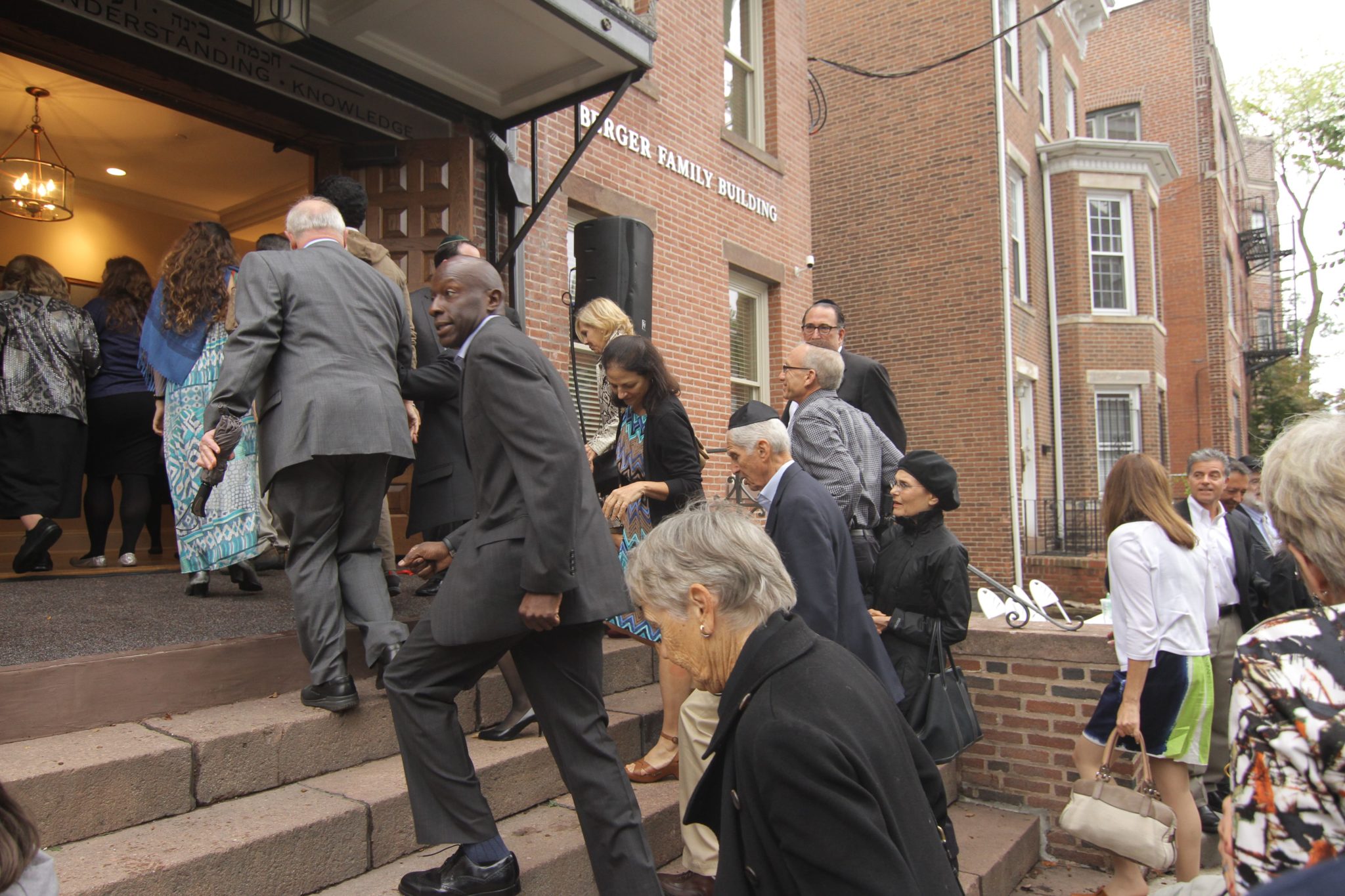
Courtesy of Henry Ehrenberg
A new Chabad initiative encourages student to ditch technology for a day and enjoy one another’s company.
This weekend, the Chabad house will host the 24/6 initiative, a technology-free Shabbat celebration. The new program, which calls on participants to “pledge Shabbat” is designed to “share the Shabbat observance experience with the Jewish community,” according to the Chabad website. Pledge-takers promise that, in accordance with the rules of traditional Judaism, they will not use any technology — including phones and computers— for the 25-hour period from sundown Friday until sundown Saturday.
While initially intended for Yale students, the new initiative has gone viral. According to Rabbi Shua Rosenstein, the co-director of Chabad at Yale University, approximately 300 Yale students have taken the pledge, as well as more than 3,000 people from around the world. Rosenstein said he expects Yale alumni to return to Chabad House this weekend from all over the country.
“We never imagined how large this would become,” Rosenstein wrote in an email to the News. “We are so used to being on call 24/7, and we hardly take the time we need for ourselves. Shabbat gives us that space, and the 24/6 weekend is a celebration of it.”
Besides the pledge, the Chabad House will also host other events to provide entertainment throughout the 25-hour, technology-free time period. For example, there will be a lecture on the origins of Shabbat, a kosher sushi chef and performances by the world-renown professional Jewish a cappella group, the Maccabeats.
Rosenstein described the pledge as “somewhat of a social experiment.” He told the News that he was excited to see what would happen if students spent the whole day without the technological distractions that prevent them from connecting with friends and neighbors.
Chabad’s website, which calls the day a “blow-out Shabbat,” explains that the impetus for the event is to disconnect from technology.
“Imagine a dinner where no one is checking their phones, the sole interaction is with the humans sitting around the table,” the statement reads. “You go to bed and fall into a peaceful slumber without thinking about an email you might receive or a snap you might miss. Waking up, there are no deadlines and there are no notifications, you can give yourself some much needed undivided attention.”
President of Chabad at Yale, Sam Burton ’20 told the News that he is excited for “delicious food and great company.”
“I think it’s important because, today, everyone is always on their phones and computers,” Burton said. “We frequently forget to live in the moment. A ‘full’ Shabbat is a great reminder that we can and should be present … It [should serve] as a great reminder that our computers and phones are not everything and that we have all these … resources — teachers, students, organizations, etc. — around us that we can enjoy. We are too [focused on] our electronics to realize that we can and should appreciate life as it is without electronics.”
Everyone — Jews and non-Jews alike — are invited to participate in the pledge, according to Chabad’s website.
Skakel McCooey | skakel.mccooey@yale.edu







